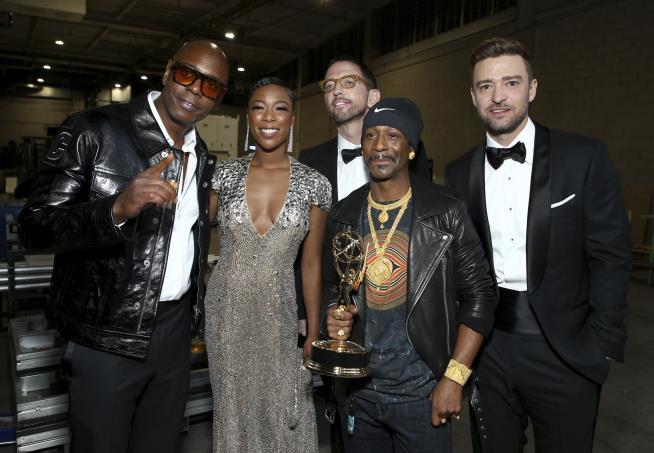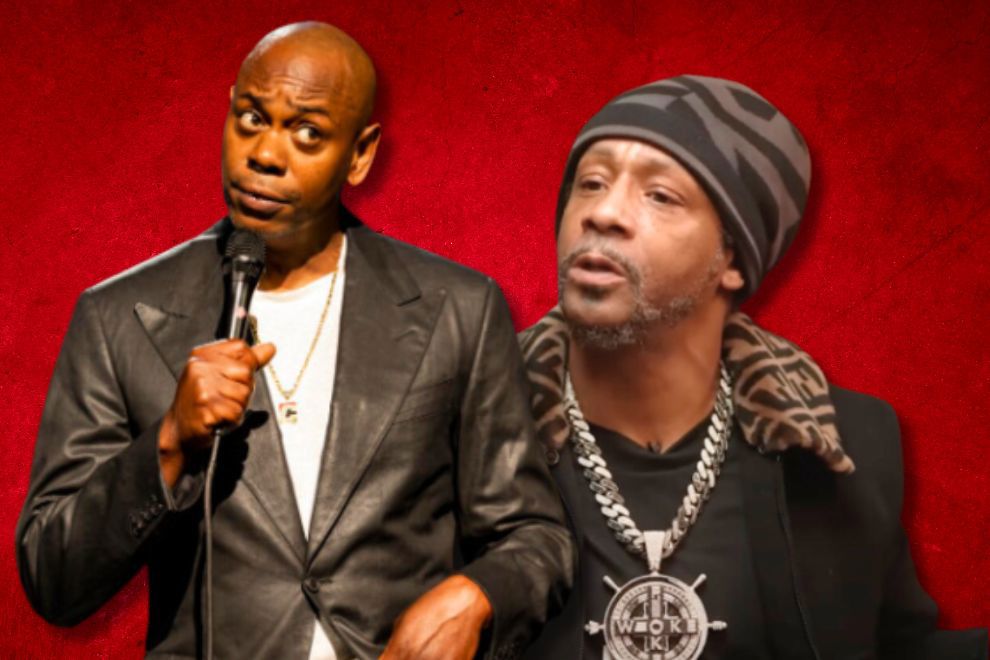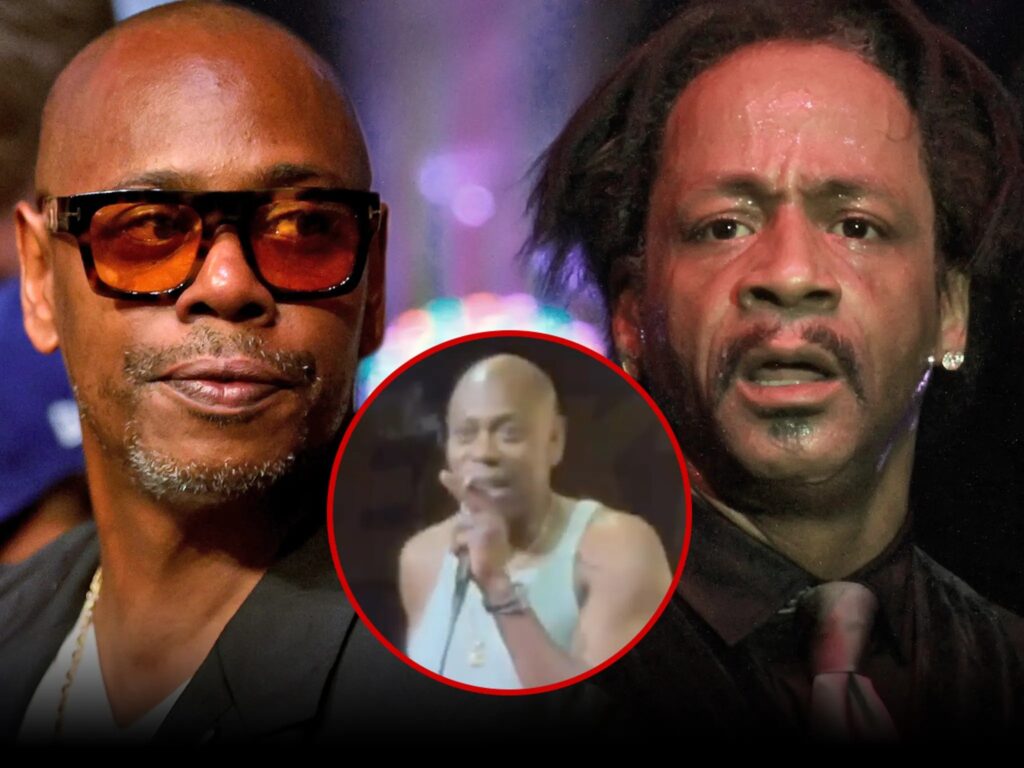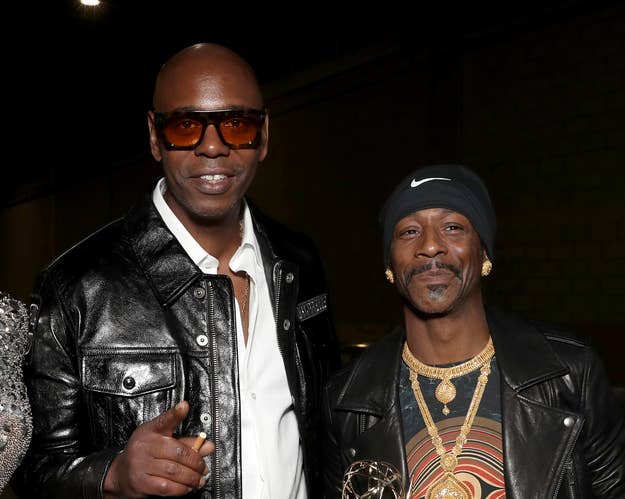It’s a chilling reality to grasp: just this past weekend, they attempted to end my life. This wasn’t some jest, but a genuine threat, a gun pressed against my face, all captured on camera. Let it sink in—I’m risking everything simply by doing my job. The world seemed indifferent, perhaps because it was happening to me. My only allegiance was to a higher power. Unless you’re Jehovah or Allah, your authority holds no sway over me. Now, brace yourselves, because Dave Chappelle has just entered the conversation, shedding light on the dark underbelly of the entertainment industry’s attempt to silence Cat Williams. This isn’t Dave’s first rodeo; he faced similar threats years ago when he dared to speak out, ultimately seeking refuge in South Africa. Despite the passage of time, Hollywood’s grip remains tight, as rumors swirl that certain individuals are eager to silence Cat for his recent candid revelations. What’s even more alarming is this isn’t the first attempt to muzzle Cat. Years prior, they tried to discredit him as a hopeless addict, and now, they seem intent on more permanent measures. It’s unsettling how my adversaries all blur into one—a unified front of opposition. Whether it’s Faon, Wanda, or Aries Spears, their faces all echo the same sentiment: “What’s in it for us?” This isn’t merely a case of workplace hostility; it’s a stark reminder of the lengths they’ll go to quell dissent, even if it means pulling a gun on a comedian. It’s a surreal and unnerving reality when the disdain against you runs that deep.
As many of you are probably aware by now, there’s been quite a buzz in the streets lately following Cat’s appearance on Club Shay. He dropped some serious bombshells about the entertainment industry, calling out big names like Kevin Hart, Steve Harvey, Diddy, JayZ, and a slew of other heavyweights. To give you a summary of the revelations, he accused Kevin Hart of being a manufactured product of the industry, claiming that Kevin was merely a puppet who complied with every demand thrown at him, no matter how questionable. According to Cat, Kevin was handed movie deals and TV shows without having to prove himself, all part of a plan orchestrated by industry elites to overshadow Cat’s relevance and mold Kevin into the new face of comedy. Cat questioned the authenticity of Kevin’s rise, highlighting how unusual it was for someone to achieve such rapid success in Hollywood without paying their dues. He also pointed out discrepancies in Kevin’s backstory, suggesting that his claims of starting out on the East Coast conflicted with his sudden emergence in Los Angeles. This isn’t the first clash between Cat and Kevin; a few years back, Kevin had publicly accused Cat of prioritizing drugs over his career.

When discussing Cat Williams’ struggles, there’s a tendency to point fingers at Hollywood, blaming the system or others for his challenges. However, at some point, individuals must take ownership of their actions. Cat had opportunities, even being positioned as a star. Yet, he faltered by missing work commitments and falling into substance abuse, which understandably made studios hesitant to invest in him.
Additionally, Cat accused Cedric the Entertainer of joke theft. While Cat claims they resolved it privately with an apology from Cedric, Cedric denies any wrongdoing. He explains that the joke in question was created years before Cat even entered the comedy scene, and that he had witnessed Cedric perform it before. It’s a matter of credibility; Cedric asserts that he didn’t steal the joke but rather developed it independently.
In the end, the truth speaks for itself. Cedric emphasizes that he won’t let false accusations tarnish his reputation, especially when it comes to his career aspirations.
He didn’t hold back, lamenting, “Why am I not a movie star?” It was clear he lacked the singing, dancing, and comedic writing prowess necessary. Despite four woeful comedy specials, they’re so abysmal they’re not even on Netflix or TV. Later, he accused Steve Harvey of envy towards the late Bernie Mac, claiming Steve was a big detractor of Bernie while he lived. Yet, after Bernie’s passing, Steve allegedly appropriated Bernie’s style and jokes to boost his own humor. Cat vehemently asserted Bernie’s unmatched hilarity, dismissing any notion of rivalry among comedians. He asserted that true talent always prevails, regardless of appearance or popularity.
However, what truly stirred conversation was Cat’s revelation about Hollywood’s agenda to feminize black men. He singled out Martin Lawrence, recalling how he was pressured into wearing a dress for “Big Mama’s House Too” despite his strong opposition. This trend of black actors donning dresses was pervasive, seen as a humiliating rite of passage towards greater fame. From Tyler Perry to Jamie Foxx, the industry seemed determined to emasculate black men for their own purposes.
Cat made it unequivocally clear to Martin and the show’s producers that he wasn’t going to wear the dress they wanted him to wear. Reflecting on the incident, he recounted Martin’s attempt to dress him up, even referencing a scene from “Big Mama’s House 2.” He questioned the need for him to don a dress yet again, especially when they had a plethora of other roles to explore. Cat expressed frustration, stating that if they wanted someone in a dress, they should hire Brandon T Jackson.

This wasn’t an isolated incident; they had previously tried to pressure Cat during the filming of “Friday After Next” in 2002. In that instance, they wanted him to film a scene involving Terry Crews assaulting him in a bathroom, under the guise of humor. Cat adamantly refused, stressing that there was nothing comedic about such a scenario. He acknowledged the risk he took, especially as a newcomer to the movie industry, but stood firm in his conviction. He emphasized the importance of maintaining integrity, even in the face of pressure, asserting that comedy shouldn’t come at the expense of someone’s dignity.
The issue with ‘Friday After Next’ lies in attempting to craft a timeless comedy while including a scene of assault. Rape is inherently not humorous, regardless of the circumstances or the individual it affects. If we were to produce this movie without subjecting a Black man to assault, I assure you it would be twice as entertaining. Why even bring up that narrative when the real story is different? None of the 35 cast and crew members ever mentioned Ricky Smiley playing Money Mike. There was never a moment where I put on a Santa Claus suit; it was crafted by our wardrobe department. Why wasn’t that included in the bloopers? I penned it. My point is, if I contributed and did it well, credit should be given where it’s due. I was involved, after all. I won’t later claim I never fully read the script. How would you know what roles to offer me then? Their job is to present, while mine is to candidly express my experience. This sheds light on why the media has been keen on portraying Cat as erratic, merely an attention-seeking addict. Many were appalled upon hearing this, yet not entirely surprised, given Dave Chappelle’s revelations in 2006 on the Oprah Winfrey Show. Chappelle, after rejecting a $50 million deal with Comedy Central and departing for Africa, cited discomfort with certain aspects of the deal. However, Oprah persistently interrupted him, pushing him to admit to some form of mental illness. “You make a $100 million deal and three months later, suddenly you’re mysteriously ‘crazy’? Or when Martin Lawrence breaks down, waving on the street, screaming, ‘They’re trying to kill me!’ Yeah, right.”

We often hear these stories, typically occurring at a pivotal point in someone’s career, signaling a transition to the next level. Yeah, exactly. Did I lose my mind? Well, not quite. It’s more nuanced than that. Let’s just say it was an incredibly stressful time.” During the interview, he recounted how certain Hollywood figures attempted to coerce him into taking antipsychotic medication. “So I took off earlier than planned, disappeared without a word to anyone. Meanwhile, they’re persistently trying to convince me I’m losing it. They even pushed psychotic meds on me, as if I’m just lounging around, when really I was just stressed out. But when those around you keep insisting you’re insane, you start to doubt yourself.” Just to provide some background, Dave made headlines in 2005 when he abruptly left the production of Season 3 of the Chappelle Show, fleeing to South Africa without explanation. His departure triggered a media frenzy, tarnishing his reputation and painting him as mentally unstable. Tabloids ran wild with allegations of drug use and manic episodes. Despite Dave’s repeated denials, the media persisted, fueling public fascination. In attempts to set the record straight, he addressed the issue in interviews like this one with the New York Times, asserting, “I’m not crazy. I’m not using drugs. I’m undeniably stressed out. There were things that overwhelmed me, but not in the way they’re portraying.” Not only were they trying to compromise Dave’s integrity and beliefs, but when he refused to yield, they launched an aggressive attack, compelling him to flee to another country out of fear for his safety.
Many speculate that Martin Lawrence experienced a similar fate in 1996. Despite complying with industry demands, such as donning a dress, he faced turmoil once deemed expendable. That year, he was apprehended in Sherman Oaks, California, brandishing a gun and shouting alarming phrases. Media coverage focused on a purported manic episode, associating it with drug use, yet medical professionals refuted these assertions. Subsequently, Martin encountered life-threatening incidents, altering his demeanor noticeably, as Dave Chappelle suggested. Chappelle’s observations on Hollywood’s influence resonated, highlighting enduring issues. Such narratives persist, underscoring systemic concerns. If you’ve followed this far, please consider engaging with the content. Your support matters.
